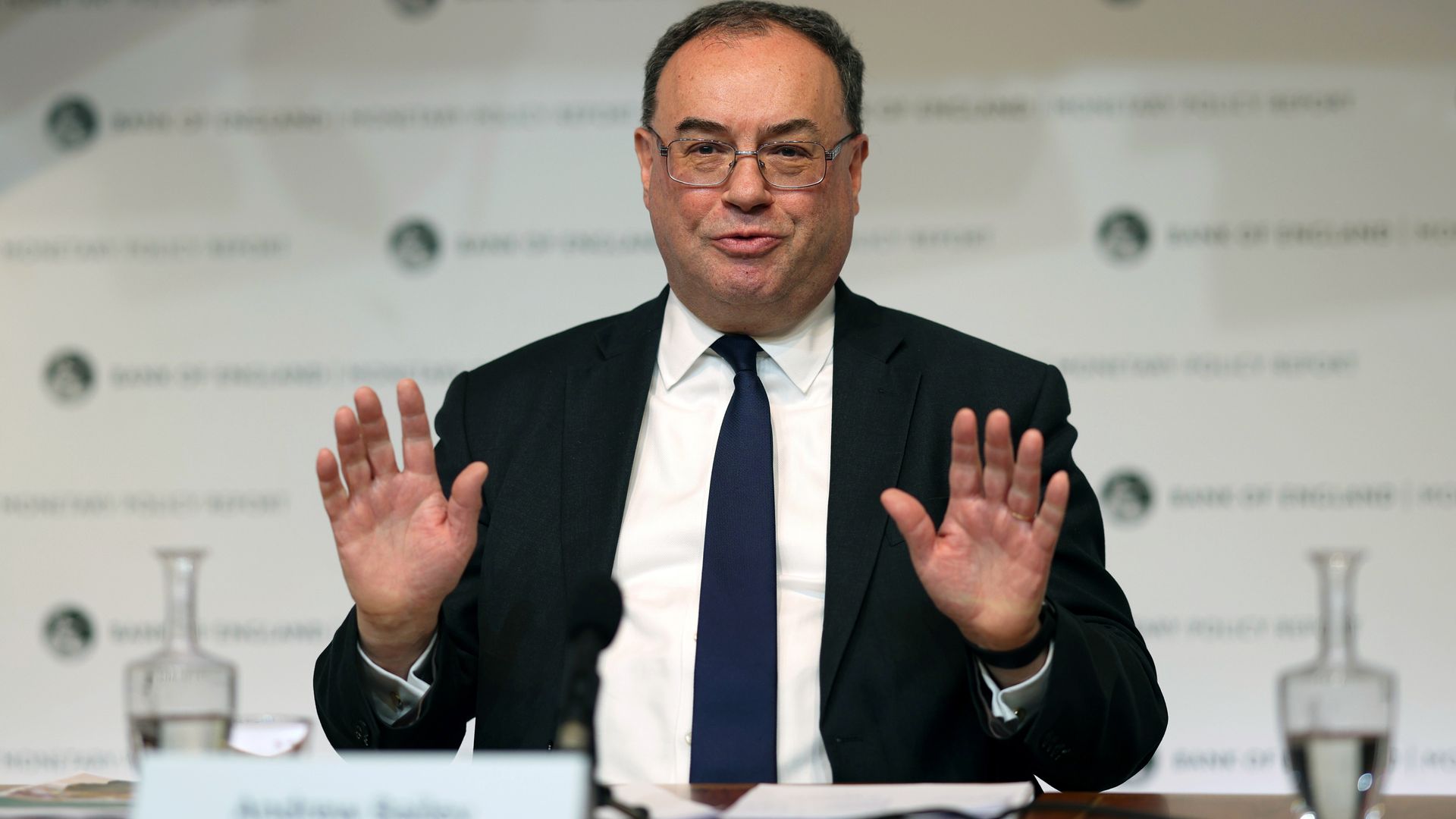Bank of England raises interest rates as ECB holds steady
Add Axios as your preferred source to
see more of our stories on Google.

Bank of England governor Andrew Bailey. Photo: Dan Kitwood - WPA Pool/Getty Images)
A group of hawks was seen at Threadneedle Street in London Thursday. There were no such sightings in Frankfurt.
Driving the news: The Bank of England raised interest rates, and four of nine policymakers dissented, wanting to raise them more. The European Central Bank, by contrast, held pat with its low interest-rate policies.
Driving the news: The U.K. central bank projected inflation would peak at 7.25% this spring, far above the 2% it aims for, and enacted a rate increase at its second consecutive meeting for the first time since 2004 to try to prevent those pressures from accelerating further.
- The bank is also beginning the process of shrinking its balance sheet, allowing bonds acquired under its quantitative easing program to run off as they mature.
What they're saying: “We have not raised rates today because the economy is roaring away,” Bank of England governor Andrew Bailey said in a news conference.
- "We face the risk that some of the higher imported inflation could become entrained within the domestic economy, leading to a longer period of high inflation.”
Four dissenters favored raising rates a full half percentage point, showing the depth of hawkish sentiment within the bank.
The big picture: The ECB is moving more cautiously, waiting for evidence of rising wages in the Eurozone before tightening the money supply pre-emptively.
- However, in a news conference, President Christine Lagarde took a notably more hawkish tone, saying "concern was across the board," regarding inflation, suggesting the central bank will re-evaluate its policies at coming meetings.
The Federal Reserve, meanwhile, is on track to raise rates for the first time in March and begin unwinding its balance sheet in the summer.
The bottom line: The world's central banks are coming around to the idea that tighter money is needed to keep the high inflation of the last year from spiraling out of control, though each at their own speed. The Bank of England is setting the pace — though at no small cost for U.K. economic growth.
Editor's note: This article was updated with Lagarde's remarks.
